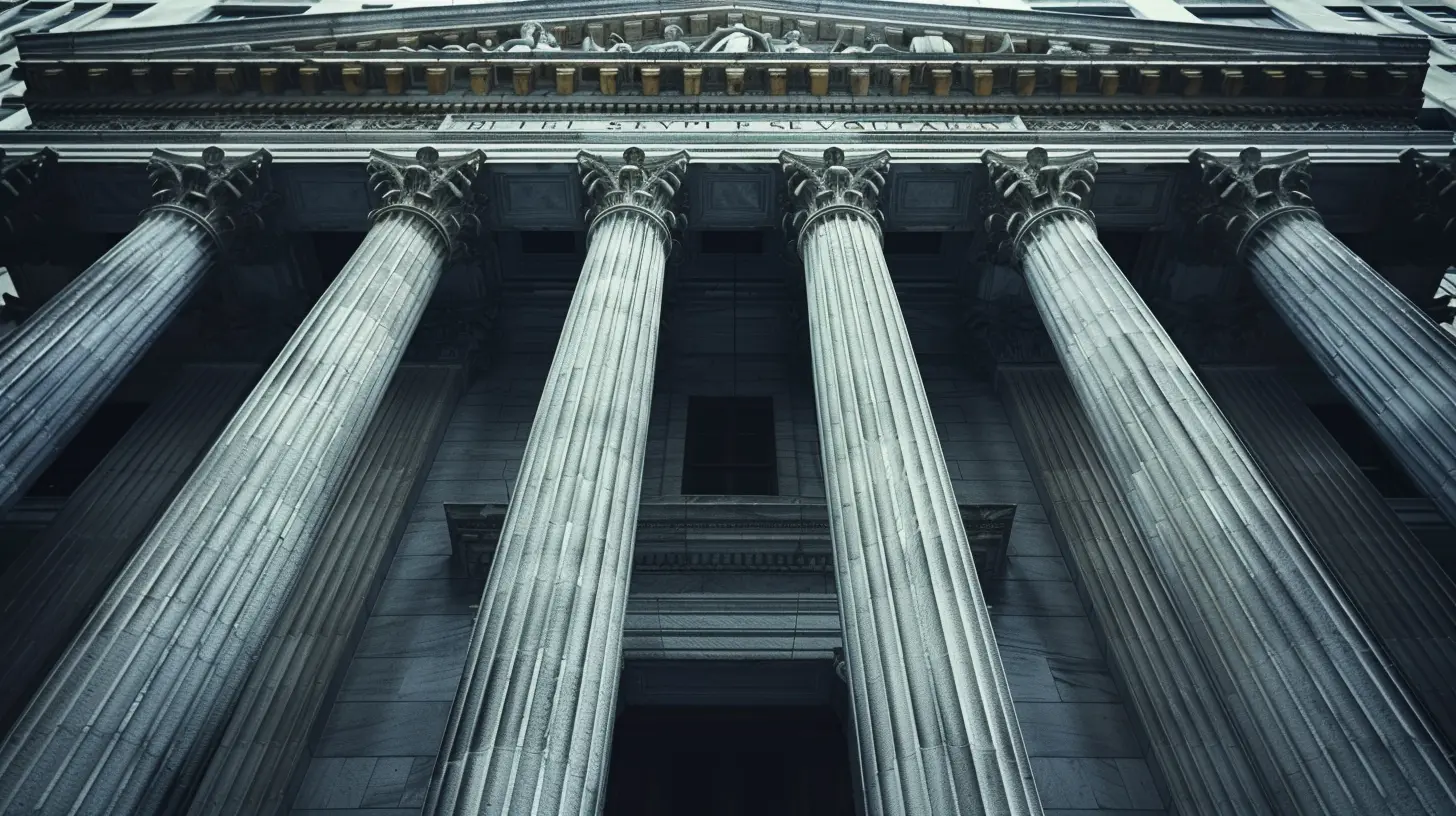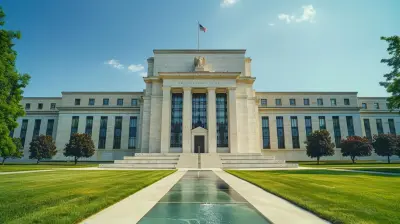Understanding the Role of Compliance Officers in the Financial Regulatory Environment
27 August 2025
Ever found yourself scratching your head, wondering who actually keeps financial institutions in check? You’re not alone! In the intricate universe of finance—filled with mountains of rules, complex transactions, and big-time money movement—there’s one group of people making sure everything runs legally and ethically: Compliance Officers.
These unsung heroes are the guardians of the financial galaxy (yep, kind of like the Marvel crew, but with spreadsheets and legal codes). So, let’s break it down, have some fun, and truly understand the role of compliance officers in the financial regulatory environment.
🌟 Who Are Compliance Officers, Anyway?
Alright, let’s keep it simple. Imagine a company is like a big cruise ship. It’s sailing across international waters—markets, client portfolios, and investments—and compliance officers are the navigators making sure that ship doesn’t crash into an iceberg of legal trouble.In a nutshell, compliance officers are responsible for ensuring that a company, especially a financial institution, follows all the laws, regulations, and internal policies it’s supposed to follow. If you’re thinking "that sounds important"—you’re absolutely right.
They’re the behind-the-scenes champs working to prevent:
- Fraud
- Money laundering
- Insider trading
- Regulatory violations
- And even those sneaky ethical grey areas
🔍 Why Is Compliance So Crucial in Finance?
Let’s put it this way: financial markets are heavily regulated for a reason. Money moves fast, often across borders, and a single mistake—or bad actor—can mess with the entire economy. Remember the 2008 financial crisis? A lot of that had to do with poor regulation and oversight.Financial institutions deal with sensitive stuff. Compliance officers make sure the firm plays by the rulebook. Without them, the risk of fines, bad PR, and even jail time shoots through the roof. Yikes.
🧭 The Regulatory Environment: A Quick Tour
Now, let’s not get lost in the legal weeds here, but it does help to know the lay of the land.Compliance officers operate under a web of regulations. Some common ones include:
- The Bank Secrecy Act (BSA)
- Dodd-Frank Act
- Anti-Money Laundering (AML) laws
- Know Your Customer (KYC) requirements
- General Data Protection Regulation (GDPR) (yep, even data privacy is their jam)
And here’s the kicker: these rules differ from country to country—and even state to state in some regions. So compliance officers have to be incredibly sharp, adaptable, and always on their toes.
🧠 What Does a Compliance Officer Actually Do Day-to-Day?
Okay, let’s dive into the nuts and bolts. If you're picturing someone hunched over a desk with a mountain of paperwork—well, you're not entirely wrong. But there’s much more to it than that:1. Policy Creation and Review
Compliance officers draft, review, and update company policies, ensuring they align with current laws and trends. They're like the wordsmiths of the rule world—crafting policies that are clear, doable, and cover all the bases.2. Staff Training
Ever joined a new job and had to sit through some compliance training videos? You can thank (or blame) the compliance team for that! They make sure everyone knows the rules—because saying “Well, I didn’t know” won’t fly when regulators come knocking.3. Risk Assessment
They analyze the company’s operations and identify potential risks. Then they create strategies to manage or eliminate them. Think of it like financial detective work before any crime actually happens.4. Monitoring and Auditing
It’s not just about setting up the rules. Compliance officers also keep an eye on things. They run internal audits, monitor transactions, and ensure everyone's walking the straight and narrow.5. Reporting and Communication
If something does go sideways, compliance officers are the communicators-in-chief. They report issues to the right authorities and often act as the bridge between senior management and regulators.💡 How Do You Become a Compliance Officer?
Thinking this gig sounds kinda cool? You’ll need a mix of education, skills, and a good moral compass.🎓 Education
Most compliance officers have a background in:- Finance
- Law
- Accounting
- Business Administration
A bachelor’s degree is usually the starting point, but many also pursue certifications like:
- Certified Regulatory Compliance Manager (CRCM)
- Certified Anti-Money Laundering Specialist (CAMS)
- Certified Compliance & Ethics Professional (CCEP)
🛠 Skills Needed
Let’s be honest—this role’s not for everyone. You need to:- Pay attention to detail (like, eagle-eye level)
- Have strong ethical standards
- Be a great communicator
- Think critically and solve problems on the fly
- Keep calm under pressure
🚨 Real-World Examples: When Compliance Saves the Day
Let’s look at a few (simplified) scenarios that show just how vital compliance officers are:Scenario 1: Stopping a Money Laundering Scheme
A bank notices irregular transfers coming in from offshore accounts. The compliance officer raises a red flag, and boom—the start of a full-blown investigation that prevents millions in dirty money from circulating. Gold star for the compliance team!Scenario 2: Preventing Insider Trading
An employee tries to use confidential info to make a quick buck on the stock market. Alerts go off in the compliance department, who then investigate and halt the activity. Scandal avoided. Thanks again, compliance!Scenario 3: Avoiding Massive Fines
Regulatory bodies often impose huge penalties for rule-breaking. A diligent compliance officer spots a potential violation way before it escalates. The company fixes the issue in time and saves millions in fines (and their reputation).🔄 How Compliance Officers Work With Other Departments
Compliance isn’t a one-person show. They work hand-in-hand with:- Legal teams – To decode complex laws and ensure solid legal footing
- Risk management – To identify stuff that could cause trouble
- IT departments – Especially with cybersecurity and data privacy
- Human Resources – For staff training and ethics management
They’re like the glue that holds the company’s moral framework in place.
🌐 The Global Impact of Compliance Officers
In our hyper-connected world, what happens in one market can affect others globally. That’s why international compliance has become a big deal. Global companies rely on compliance officers to navigate different legal systems while maintaining uniform ethics and integrity.From New York to Singapore, London to Tokyo—compliance officers are making sure businesses stay squeaky clean (or at least try really hard to).
🚀 The Future of Compliance: AI, Tech & Transformation
Okay, big question: what’s next?Well, technology is shaking things up in a major way.
🤖 Enter RegTech
Regulatory Technology—or RegTech—is streamlining compliance with automation, real-time monitoring, and AI-powered systems. This means compliance officers spend less time chasing paperwork and more time analyzing big-picture trends.Some cool tech tools include:
- Automated transaction monitoring
- Machine learning for fraud detection
- Blockchain for transparent auditing
But don’t worry—robots aren’t replacing compliance officers just yet. Instead, they're becoming their trustworthy sidekicks, like Batman and Robin.
😇 Why We Should All Appreciate Compliance Officers More
Let’s be honest. Compliance officers aren’t the flashiest folks in the finance world. They’re not usually closing deals or ringing the stock market bell. But they are absolutely essential.They protect companies from legal trouble, keep investors safe, and make sure the financial world doesn’t descend into chaos. That’s pretty heroic, don’t you think?
So the next time you see someone in the compliance department, give them a smile or a high five (they’ve definitely earned it).
Conclusion: Compliance Officers—The Ethical Anchors of Finance
If we had to sum it all up, compliance officers are the ethical anchors in the vast ocean of finance. They might not wear capes or command armies of followers on social media, but they’re some of the most important folks keeping the financial ship afloat.They combine brains, integrity, and a touch of legal wizardry to ensure that institutions stay on the right side of the law. And in today’s high-stakes, always-changing financial world, that’s no easy feat.
The bottom line? If there’s one role in finance that deserves more recognition—it’s the compliance officer.
all images in this post were generated using AI tools
Category:
Financial RegulationAuthor:

Yasmin McGee
Discussion
rate this article
1 comments
Xeno Marks
Great insights! Compliance officers play a crucial role in navigating the complex financial regulatory landscape. Thank you for sharing!
September 17, 2025 at 4:07 AM

Yasmin McGee
Thank you for your feedback! I'm glad you found the insights valuable. Compliance officers are indeed essential in ensuring regulatory adherence.


